Two weeks to go and the vibes election is back. But this time, the vibes are vibing for the GOP. The question, though, is whether they are any more real outside the party this time than they were for Democrats this summer.
A Republican insider, whose opinion I respect, told me the following: “If anybody tells you they know for certain what’s going to happen on Election Day, figure out what else they’re lying to you about.”
Well put. And yet …
Most of the people in the GOP are feeling very, very certain about things today. Bigly. And Democrats, as is their fashion in the fall of election years, are freaking out. It’s hardly new for Republicans to be overconfident to the point of absurdity nor for Democrats to get panicky, or, in the famous words of Barack Obama, “all wee-weed up.”
But this October is different. This sucker is close. Or it appears to be, anyway.
In an average of the five most recent high-quality national polls, Vice President Kamala Harris leads former President Donald Trump by just 1.2 points. That is very much inside the swing state shift that has twice caught Democrats this century and down from an advantage of 2.2 points a month ago.
Most unnerving for Democrats, Harris’ margin looks puny compared to future President Joe Biden’s 7.6-point advantage over Trump two weeks from Election Day 2020. Biden would miss that mark substantially when the votes were all counted, ending up with a 4.5-point advantage. A similar miss would give Trump not just an easy Electoral College win but the first national popular vote victory for a Republican in 20 years.
Republican exuberance and Democratic despair are both encouraged by the fact that all of the big election forecasters now say Trump is the favorite to win the 2024 presidential election. As of this writing, Nate Silver says Trump’s win probability is 53.1 percent, Decision Desk HQ and The Hill say 52 percent, and 538 says 53 percent. And note: Not only do they agree on the likely winner, they’re also closely clustered on the actual forecast.
I won’t repeat all the problems about forecast models, except for one: They offer a beguiling degree of scientific-sounding certainty about a situation that is very uncertain.
My preference is generally to stick with the polls, since forecasts are trying to include lots of things that are hard to account for in an election very much unlike anything in modern history: a former president who is a felon running against a black, female incumbent vice president who didn’t enter the race until well into the summer. And even among polls, I mostly keep it simple.
State polling is sparse and unreliable compared to the national picture. In the past two weeks, for example, there have been exactly two high-quality polls of Georgia, a must-win state for Trump. In one, he’s up 6 points. In the other, she’s leading by 4 points. There have been seven national polls over the same period, most showing a race within the margin of error.
No comfort for Democrats there, either. If the voters who have made up their minds since Labor Day go overwhelmingly for Trump, and there’s less than 2 points worth of undecided voters left, Harris will be wiped out at the end.
So how likely is that?
We have a pretty good sense of who the Trump voters who came in during the early fall were. They’re pretty well typified by the Wall Street Journal editorial that basically holds that, yes, Trump is an enemy of the small-r republican order, but that the guardrails would hold again: “We have confidence that American institutions—the Supreme Court, the military, Congress—would resist any attempt to subvert the Constitution.”
“When Trump works the fryers at Mickey D’s or gets cheered at a Steelers’ game, it feels to Republicans like something is happening, in the same way that Democrats felt when Harris started packing out arenas and dominating the meme wars.”
And, the paper argues, Democrats are less ambitious in their attacks on the system, but more effective, writing that the blue team might be able to discard the legislative filibuster in the Senate: “That in our view is a greater threat to the Constitution than anything Mr. Trump might be able to do in a second term.”
If that sounds familiar, it is because it echoes what the Journal’s counterpart on the left, the New York Times, wrote last month in endorsing Harris:
“She may not be the perfect candidate for every voter, especially those who are frustrated and angry about our government’s failures to fix what’s broken — from our immigration system to public schools to housing costs to gun violence. Yet we urge Americans to contrast Ms. Harris’s record with her opponent’s.”
The Times endorsement came at the end of Harris’ climb into a polling lead in this race riding on euphemistic “vibes,” or “joy” as she went from about 45 percent in late July to her current, fairly stable 49 percent. But there she has remained, causing Democrats to fume over her “stalled” performance.
What we have here is a vibe-ological misunderstanding. Formerly axious, angry Democrats were the voters behind Harris’ initial surge. What appeared to them to be broader momentum was actually just a convention bounce come early. When she replaced Biden at the top of the ticket, Democrats reunited and were, in fact, filled with joyful vibes about her and the race.
But while the independent voters who populate the ranks of the persuadable are not immune to vibes, they are not as susceptible as partisans. Harris’ late summer surge didn’t stall so much as it achieved its destination: a united, energized Democratic Party. She wasn’t switching voters from Trump so much as she was reengaging Democrats who had thrown up their hands in frustration at Biden’s long march toward electoral ignominy.
That’s not enough to win, but she wouldn’t be able to win without it. Necessary, but not sufficient.
Now it is the Republicans’ turn to bask in the vibe-ological glow. Republicans are today as fully engaged for Trump as they have ever been, but this time, the party closed ranks behind its nominee far sooner than in the previous two contests. This was helped partly by now deep familiarity with Trump and his ways, but also by Harris herself. Where Biden was a figure of contempt and some pity for many Republicans, Harris is sparking some real anxiety.
So when Trump works the fryers at Mickey D’s or gets cheered at a Steelers’ game, it feels to Republicans like something is happening, in the same way that Democrats felt when Harris started packing out arenas and dominating the meme wars.
Trump isn’t giving serious interviews, is refusing to debate again, and is, um, erratic on the stump. But to Republicans, that’s not important right now. They have plenty of evidence to suggest that a vibes-only campaign will be enough to carry them through. If it worked for Democrats, they figure, it can work for them, too.
The truth will be much harder. Vibes are necessary, but not sufficient for the red team, just as they are for the blue.
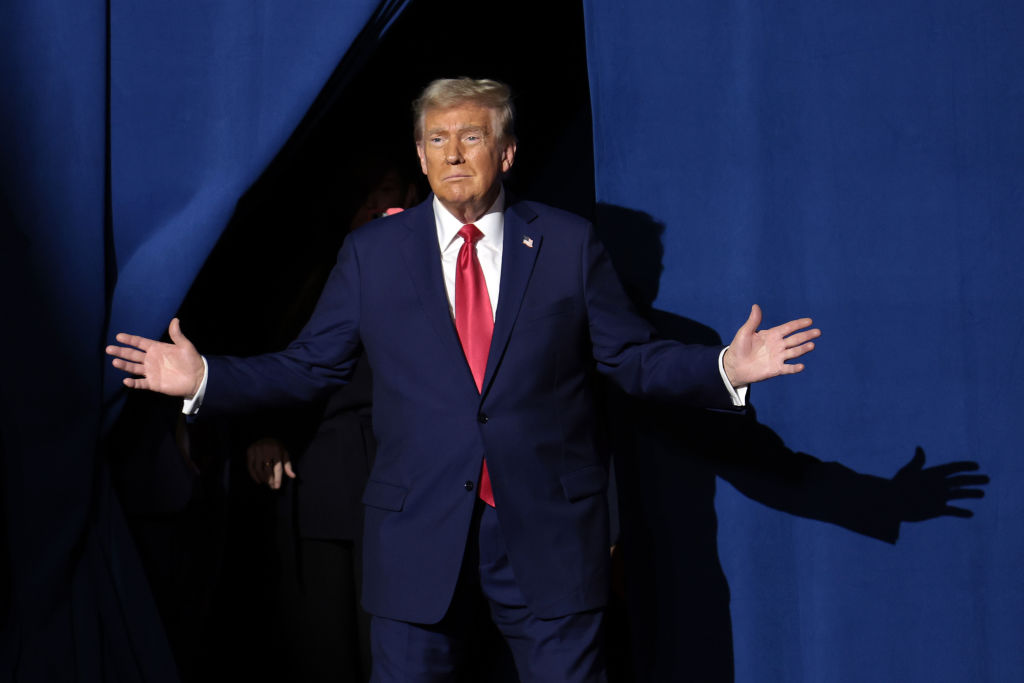

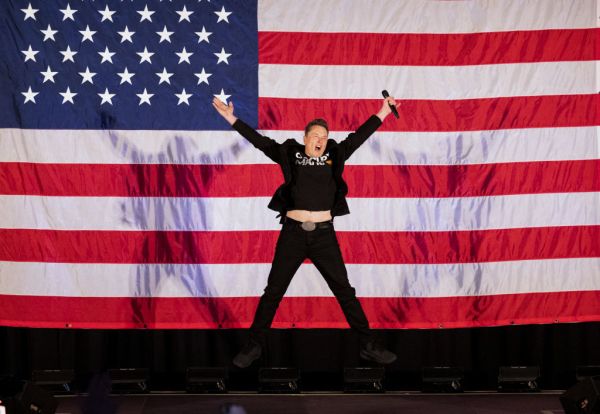
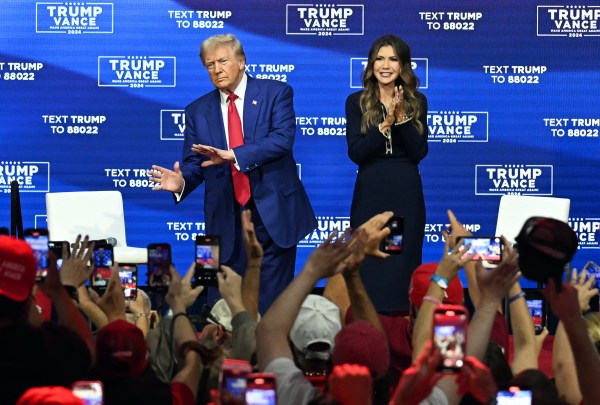
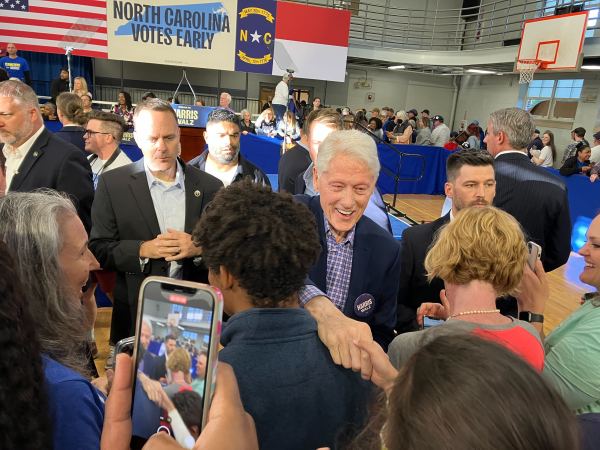

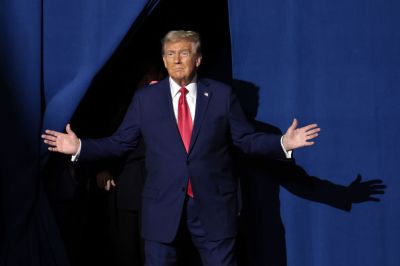
Please note that we at The Dispatch hold ourselves, our work, and our commenters to a higher standard than other places on the internet. We welcome comments that foster genuine debate or discussion—including comments critical of us or our work—but responses that include ad hominem attacks on fellow Dispatch members or are intended to stoke fear and anger may be moderated.
With your membership, you only have the ability to comment on The Morning Dispatch articles. Consider upgrading to join the conversation everywhere.